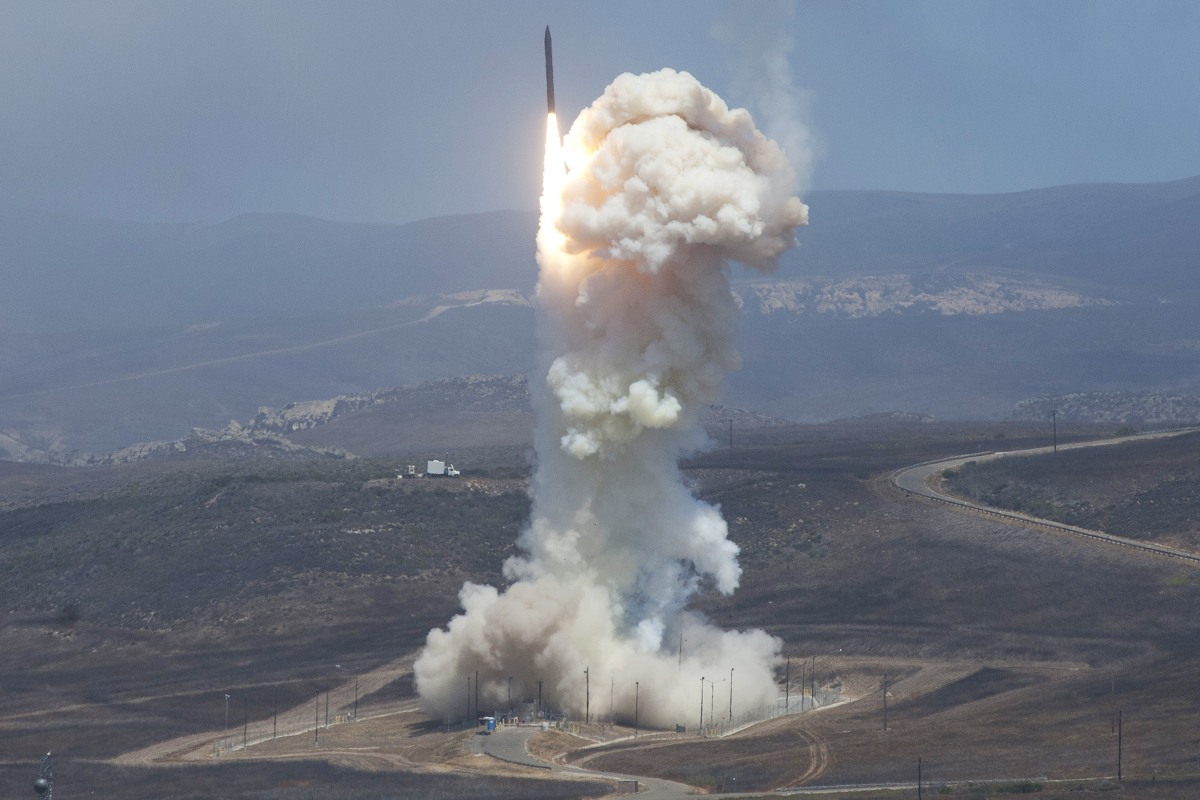Defense Department Makes Successful Missile-Intercept in Test
WASHINGTON, May 30, 2017 — The Defense Department today successfully intercepted an intercontinental ballistic missile target during a test of the Ground-based Midcourse Defense element of the nation’s ballistic missile defense system, according to a Missile Defense Agency news release.
NBCNY
The successful test was conducted by the Missile Defense Agency, in cooperation with the U.S. Air Force 30th Space Wing, the Joint Functional Component Command for Integrated Missile Defense and U.S. Northern Command.
‘An Incredible Accomplishment’
“The intercept of a complex, threat-representative ICBM target is an incredible accomplishment for the GMD system and a critical milestone for this program,” said MDA Director Navy Vice Adm. Jim Syring. “This system is vitally important to the defense of our homeland, and this test demonstrates that we have a capable, credible deterrent against a very real threat. I am incredibly proud of the warfighters who executed this test and who operate this system every day.”
This was the first live-fire test event against an ICBM-class target for GMD and the U.S. ballistic missile defense system.
During the test, an ICBM-class target was launched from the Reagan Test Site on Kwajalein Atoll in the Republic of the Marshall Islands. Multiple sensors provided target acquisition and tracking data to the Command, Control, Battle Management and Communication system.
The Sea-Based X-band radar, positioned in the Pacific Ocean, also acquired and tracked the target. The GMD system received the target tracking data and developed a fire control solution to intercept the target.
A ground-based interceptor was launched from Vandenberg Air Force Base, California, and its exo-atmospheric kill vehicle intercepted and destroyed the target in a direct collision.
Flight Data Slated for Evaluation
Initial indications are that the test met its primary objective, but program officials will continue to evaluate system performance based upon telemetry and other data obtained during the test.
The test, designated Flight Test Ground-Based Interceptor-15, will provide the data necessary to assess the performance of the GMD system and provide enhanced homeland defense capabilities.
The GMD element of the ballistic missile defense system provides combatant commanders the capability to engage and destroy intermediate and long-range ballistic missile threats to protect the U.S. The mission of the Missile Defense Agency is to develop and deploy a layered ballistic missile defense system to defend the United States, its deployed forces, allies and friends from limited ballistic missile attacks of all ranges in all phases of flight.
***
Evaluation of Missile Defense System
“This is the first test event against an ICBM-class target for the ground-based mid-course defense system,” Davis said. “Program officials will evaluate system performance based upon telemetry and other data obtained during the test.”
A release and video are expected from the Missile Defense Agency, Davis said.
Ballistic missile proliferation continues to be a concern for the United States as additional countries acquire a greater number of ballistic missiles, Davis said.
Those countries, according to Davis, are increasing the range and incorporating ballistic missile defense countermeasures and making them more complex, survivable, reliable and accurate.
Concerns About North Korea, Iran
Davis highlighted two countries of concern: North Korea and Iran.
While today’s test was not timed because of recent North Korean actions, he said, North Korea is one of the reasons why the United States has the capability.
“North Korea has expanded the size and the sophistication of its ballistic missile forces from close-range ballistic missiles to intercontinental ballistic missiles,” he said. “They continue to conduct test launches, as we saw even this weekend, while also using dangerous rhetoric that suggests that they would strike the United States homeland.”
In addition, Iran continues to develop more sophisticated missiles and improve the range and accuracy of current missile systems, he said.
“Their ballistic missile capability will continue to threaten U.S. strategic interests in the Middle East,” he said. “Iran’s overall defense strategy relies on a substantial inventory of theater ballistic missiles capable of striking targets throughout the region.”

